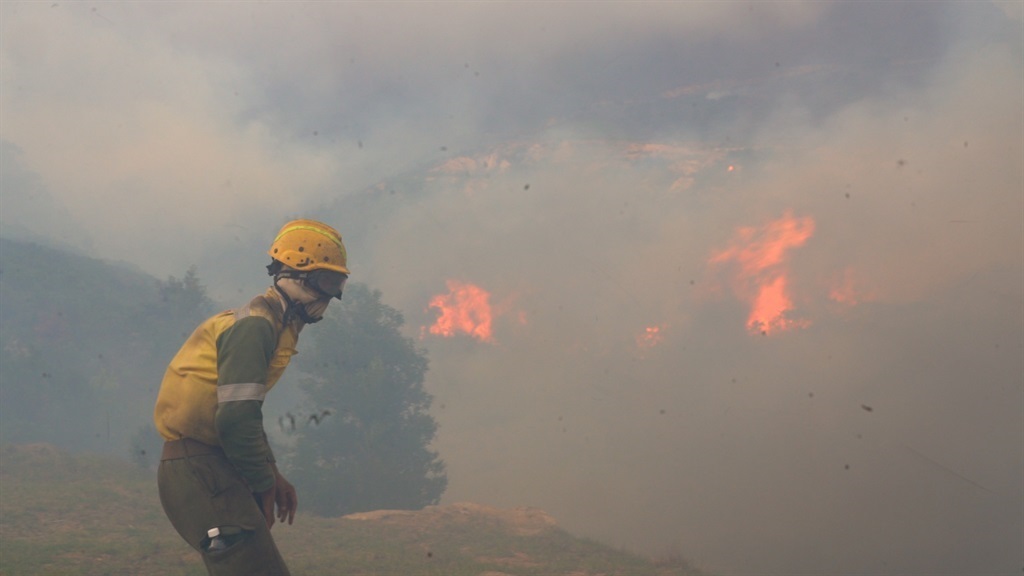- A fire started in the vicinity of Rhodes Memorial on Sunday, 18 April.
- It quickly spread over the mountain, scorching about 600 hectares of land.
- Its biggest victim was UCT's library, where 75 000 books from the African Studies Collection went up in flames.
Fires in Cape Town are a relatively regular occurrence, but few are quite as devastating as the recent runaway fire, which started on Sunday, 18 April.
It culminated in the destruction of some priceless cultural heritage.
The Western Cape recorded about 17 000 fires during a previous season, James-Brent Styan, spokesperson for Environmental Affairs and Development Planning MEC Anton Bredell, told News24.
He said 95% of these fires were doused within the first hour, which "speaks to what we've got in place".
But with tinder-dry vegetation blanketing the mountain range at the end of summer, it takes just one windblown spark to ignite a catastrophe.
Fanning the flames
Fire and Rescue Services were alerted to a fire on the lower mountain slopes, near Rhodes Memorial, at 08.45 on that Sunday morning.
As the flames spread, a gas canister exploded at the Rhodes Memorial Restaurant and Tea Garden. Within hours, it had reached the University of Cape Town (UCT).
The library was engulfed in flames, destroying 80% of the African Studies Collection.
The nearby, historical Mostert's Mill was also gutted.
Galeforce winds fanned the flames - and, when it finally died down on day three, it revealed the full devastation the fire had left in its wake.
While salvage operations at UCT are already underway, authorities are now trying to establish what caused the fires, and whether it could have been prevented.
'Let's get the answers'
Initial investigations indicate that a homeless person's unattended fire started the blaze.
The issue of the homeless seeking refuge on the mountain has come under the spotlight, in the days since the fire.
SANParks' management of the mountain has also been criticised, and many Capetonians want answers.
Alien vegetation fuelled the blaze, with questions now being asked about why it had not been cleared.
News24's latest documentary looks back on the events as it unfolded and asks whether the preservation of the Stone Pines on the slopes of Table Mountain can be justified.
Independent forensic investigator, David Klatzow, believes there needs to be a thorough investigation:
"Why do you allow such a dangerous conglomeration of foliage to be on the border of a national resource. We're talking about a national treasure. The library is irreplaceable, and the tragedy is that it is gone. And everybody's saying, 'oh oops', that's not good enough, it should never have happened."








